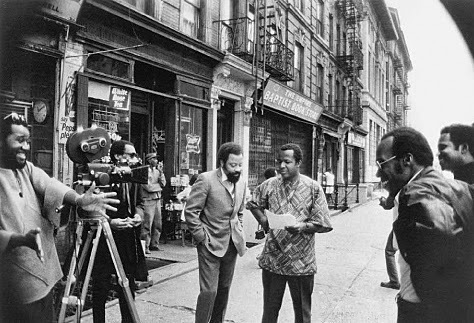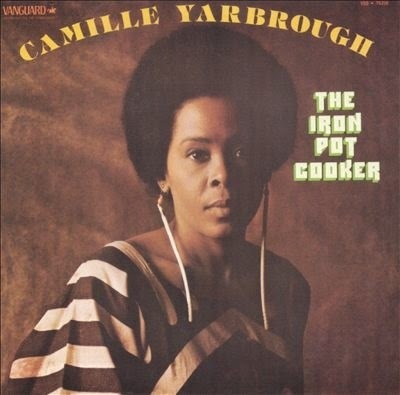Mark Anthony Neal's Blog, page 802
August 27, 2014
Historian John Hope Franklin & Bill Cosby @ Duke University
Published on August 27, 2014 12:26
Academics Teaching #Ferguson—African & African American Studies at Duke Town Hall | September 1, 2014 @ 7pm

Friedl Building , 115Duke University, East Campus1316 Campus Drive
Durham, NC 27708
***
William "Sandy" Darity, Jr. | Samuel DuBois Cook Professor of Public Policy, African & African American Studies and Economics; and Director, Duke Consortium on Social Equality | @SandyDarity
Angel Harris | Professor of Sociology and African & African American Studies
Karla FC Holloway | James B. Duke Professor of English and Professor of Law and Professor of Women's Studies | @ProfHolloway
Wahneema Lubiano | Associate Professor of African & African American Studies and Literature | @Wahneema
Mark Anthony Neal | Professor of African & African American Studies and Director of the Center for Arts, Digital Culture and Entrepreneurship | @NewBlackMan
Luke Powery | Dean of Duke University Chapel and Associate Professor of the Practice of Homiletics | @LukeAPowery
Published on August 27, 2014 07:47
Michael Jackson -- "Got to Be There"
Published on August 27, 2014 05:00
August 26, 2014
As #Ferguson Unraveled, The World Found A New Way Of Watching
Published on August 26, 2014 17:09
The Economics of High School Students and Early Start Times
 Eric James Sarmiento/Via creative commons
Eric James Sarmiento/Via creative commonsMarketplace
The American Academy of Pediatrics has joined a chorus that’s been growing louder for years: The school day should start later for teenagers because they aren’t wired to go to bed early — and they need their sleep. The AAP says this is a public-health issue: Sleep-deprived teenagers are more likely to crash cars, get depressed, and become obese. Also, they may not do as well in school. However, early start times aren't going away quickly, and probably won't, because of the costs.
Published on August 26, 2014 16:57
“Reading” to Live by Mark Anthony Neal
 “Reading” to Live
by Mark Anthony Neal | NewBlackMan (in Exile)
“Reading” to Live
by Mark Anthony Neal | NewBlackMan (in Exile)I’d be lying if I said, I didn’t chuckle heartily when I first heard of Curtis Jackson’s “reading challenge” to boxer Floyd Mayweather. What seemed humorous to many at the time though, brings to light, a subject that some take for granted: literacy. In shaming Mayweather about his purported struggles at reading, Jackson has unwittingly shamed a significant portion of our community—including adults—that also suffer from various forms of illiteracy. These levels of literacy have dramatic impacton every thing from school dropout rates to incarceration rates among Black youth.
The issue of adult illiteracy is something close to my heart; I am the son of an African-American man, who was raised in the deep south, and like many of his generation, was forced to leave school to work. When my father dropped out of school in the 10thgrade, he had not learned to read.
As someone who makes my living with words, I never forget the irony that I’ve written books and essays that my father was incapable of reading. Yet my dad managed to live and work in New York City for more than 40 years by developing a keen sense of space and place. His ability to survive in the big city is a subtle reminder there are other forms of literacy that can be just as valuable as reading. So called “street knowledge” was as real to my father as breathing.
To his credit though, my father understood the value of reading often performing reading for me—pretending to “read” newspapers and magazines—as I would later find out from my mother. She recalled with some heartbreak, her own realization that my father could not read, just months before their marriage. Given the intense investment in education and literacy in her own family, there’s no question my father’s inability to read was a mark of shame for her.
Indeed traditional forms of literacy were overemphasized in my home, as my mother rather frankly told me that she wanted me to have the opportunities that my father couldn’t. The volumes of Britannica Encyclepedias that served as a pre-digital Google for much of my childhood was proof of my father’s buy-in.
My father and I never had a conversation about his lack of reading ability, in part, because I never experienced a disconnect between his so-called illiteracy and his cognitive skills. While I knew my father wasn’t “learned” in a strict academic sense, the ways he taught me to listen to music, watch Tom Seaver or Jerry Koosman “paint” the corner, count money, ride the subway or fry an egg, where all forms of literacy that he directly passed on to me; they all remain part of the skill-set that makes me who I am.
I became the man, the parent and the writer I am, not in spite of my father’s so-called illiteracy, but because of it.
Published on August 26, 2014 08:23
Camille Yarbrough--"Take Yo' Praise" (1975)
Published on August 26, 2014 03:12
August 25, 2014
Talks at the Schomburg: Walter Mosley & Michael Eric Dyson
 The Schomburg Center
The Schomburg Center
Talks at the Schomburg: Walter Mosley & Michael Eric Dyson
Novelist Walter Mosley discusses his work that spans across the genres of literature, film and theatre. Mosley is in conversation with author and Professor of Sociology at Georgetown University, Michael Eric Dyson.
Published on August 25, 2014 14:41
Ebola's Cost to African Economies
 Marketplace World
Marketplace WorldThe Ebola outbreak claiming lives in West Africa is also hurting the economies of Sierra Leone, Guinea and Liberia and the harm is micro and macro in scope.
Published on August 25, 2014 10:38
Mark Anthony Neal's Blog
- Mark Anthony Neal's profile
- 30 followers
Mark Anthony Neal isn't a Goodreads Author
(yet),
but they
do have a blog,
so here are some recent posts imported from
their feed.








